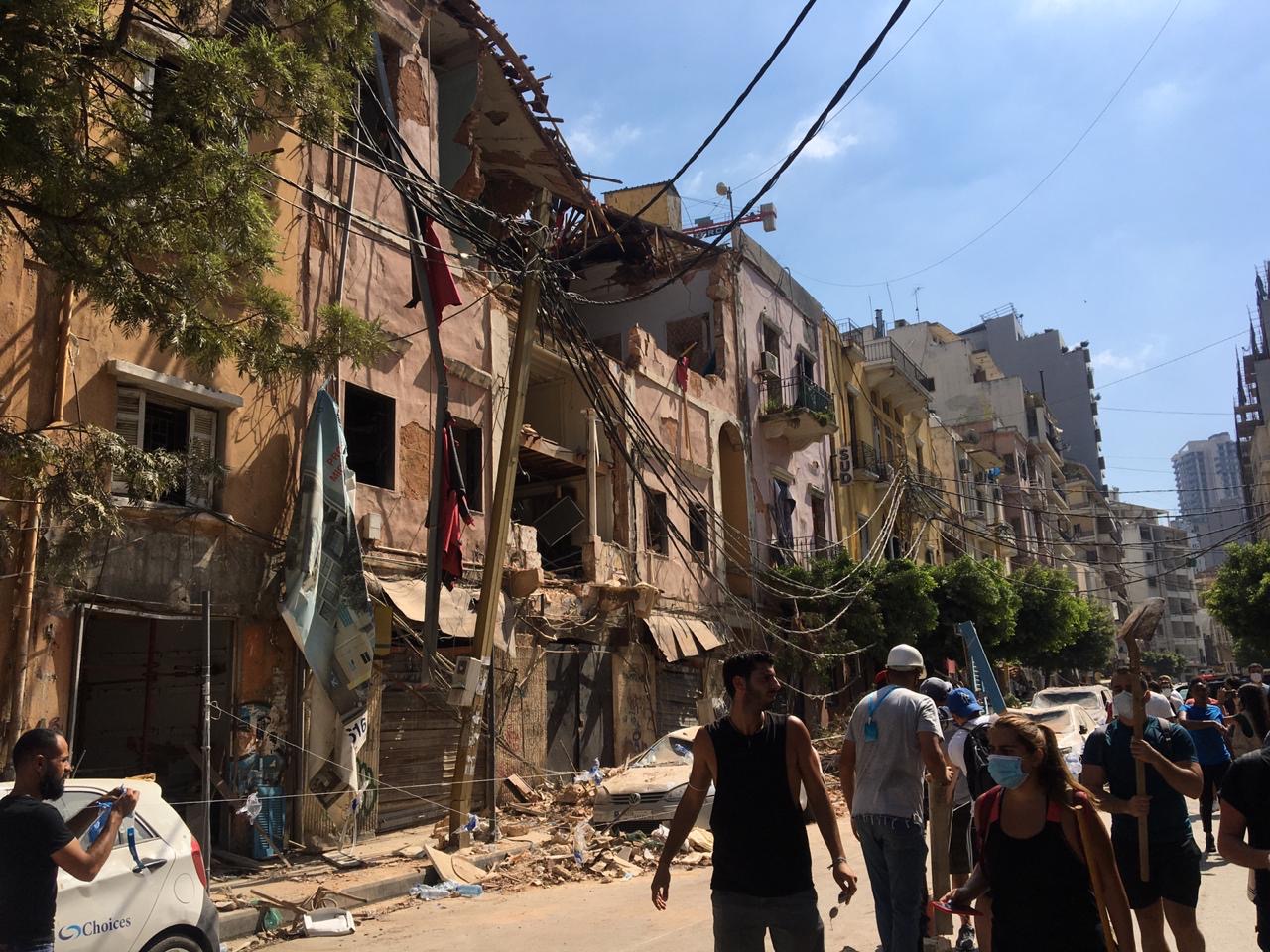
When the sun rose on a battered Beirut the morning after last week’s deadly explosion, hundreds of undaunted, albeit traumatized young Lebanese Armenians descended on the ravaged capital’s unrecognizable streets to restore some semblance of home.
“Beirut is not going to be the same ever again,” said longtime resident Patyl Kevorkian. “Beirut as a physical entity does not exist anymore,” she continued. Kevorkian was one of hundreds who immediately took the initiative to clear Beirut’s predominantly Armenian neighborhoods of the wreckage caused by the deadly explosion at the port that left thousands injured and hundreds of thousands homeless.
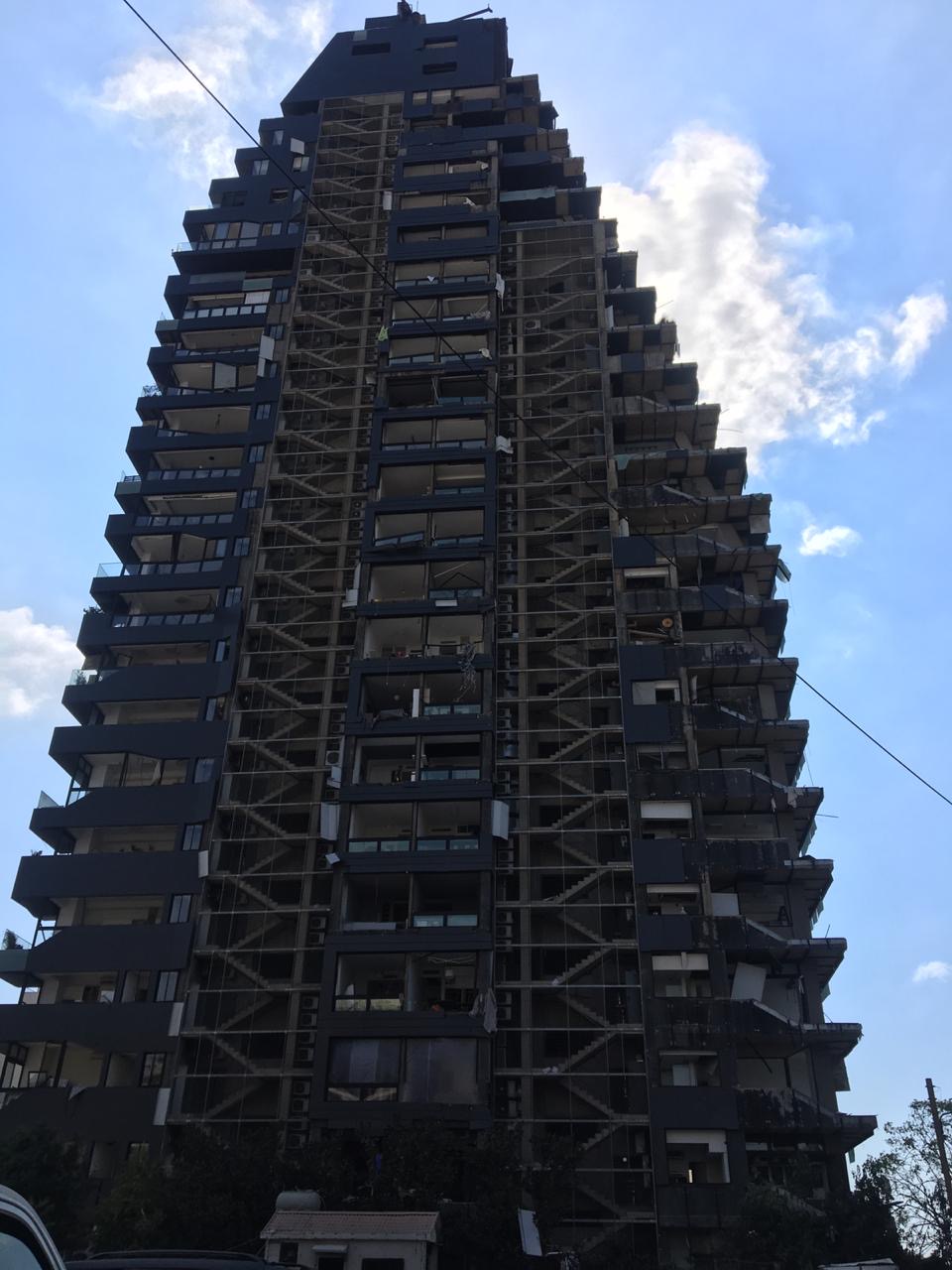
Armed with nothing more than the resolve to help their Armenian communities, these young people, many of whom hail from local Homenetmen and Armenian Revolutionary Federation (ARF) chapters, visited the mixed commercial and residential neighborhoods of Achrafieh, Bourj Hammoud, Gemmayzeh and Mar Mkhael, sweeping the floors of shattered glass and removing debris and bricks from demolished walls. Others distributed food to those in need, like members of Antelias Homenetmen who have been preparing food for displaced residents of Beirut. Some of them even kept watch for vulnerable homes as a form of security in the absence of windows and doors that were destroyed on impact.
“The first day I couldn’t sleep. I couldn’t eat. I couldn’t even drink water,” recalled Homenetmen Beirut member and American University of Beirut physics student Levon Kalaydjian, who was napping at his home in Mount Lebanon during the sudden explosion last Tuesday evening. “But the day after I realized that, khalas, what is done is done. We should move on from that. I personally never give up on anything. So I wasn’t going to give up on my home.”
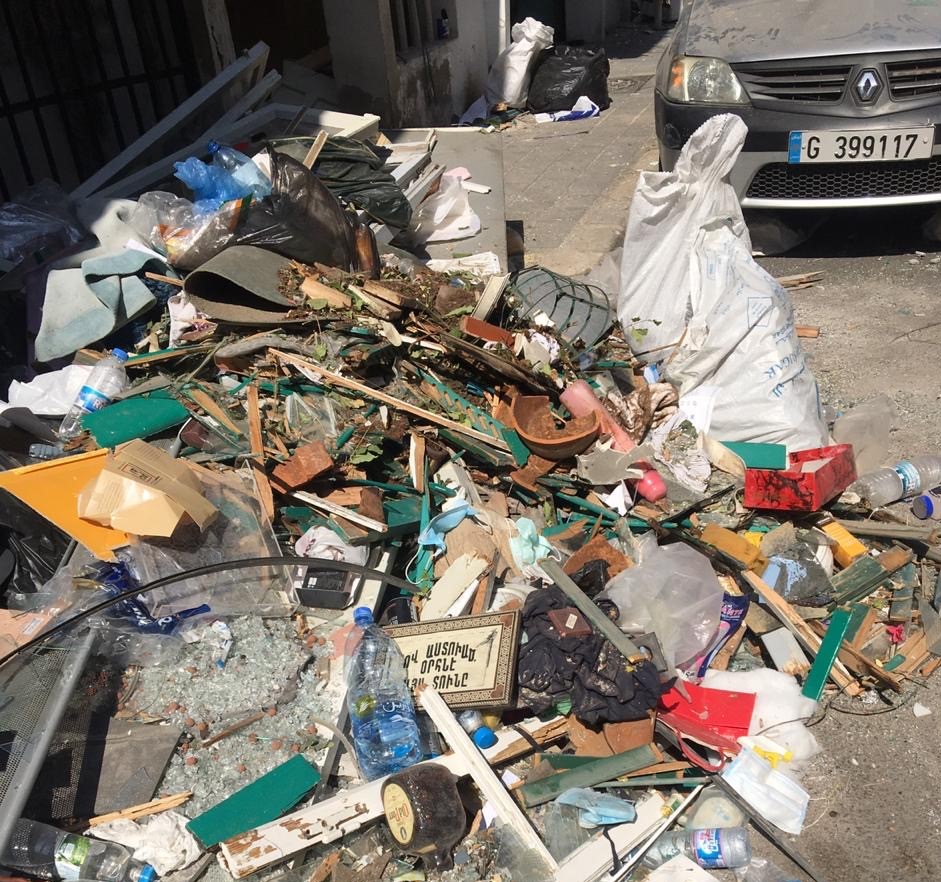
In the grim aftermath of the blast and amid incalculable loss, Kalaydjian said it was heartbreaking to find abandoned pieces of Armenian family life and culture strewn about in a post-apocalyptic scene. In a pile of trash and rubble on the ground, he found a plaque that traditionally adorns Armenian living rooms with the prayerful message “God bless this home” (Ով Աստուաձ օրհնէ այս տունը). “You can’t understand how much of an emotional moment that was for me to know that an Armenian home has been destroyed,” described a tearful Kalaydjian.
After one day on the ground helping four families, Kalaydjian realized he could do more by consolidating the efforts of interested and able-bodied volunteers into a WhatsApp group to organize the arduous tasks ahead. The 18 year-old and his team of 130 volunteers have since helped restore more than 50 residential buildings, shops and schools. He says the majority of their work cleaning up the Armenian neighborhoods is relatively complete, but larger renovations are still needed.
“Out of all the misery that we are witnessing, it is very heartwarming to see that people, no matter their age, no matter their status, are trying to help in any way they can,” said Kevorkian on the compassionate, volunteer-led initiatives—a sign of hope in a country that is now even more infuriated with its seemingly apathetic government which has long been embroiled in accusations of corruption and gross mismanagement. “This is where the people have finally come together again in demanding some answers…and something to take place in order to foster change, positive change,” said Kevorkian, who also noted the absence of government officials and public administrators in the active recovery efforts. “Lebanon has suffered so much,” she continued. “No one was expecting something like this.”
This tragedy will forever be a heavy burden for the people of Beirut. Donations have been pouring in from every Armenian community around the world to keep “the heart of the Diaspora” beating. In addition to the immediate response from international humanitarian organizations including the Armenian Relief Society (ARS), there’s even a grassroots relief effort powered by the youth on social media called Together for Lebanon, which will be covering renovation expenses and providing emergency relief for residents in Mar Mikhael, Gemmayze, Karantina and Bourj Hammoud among other neighborhoods that are reeling from the blast.
“I can’t express how proud I am of my community right now,” said Kalaydjian. “It will never be Beirut as we used to know it, but it will be ours.”
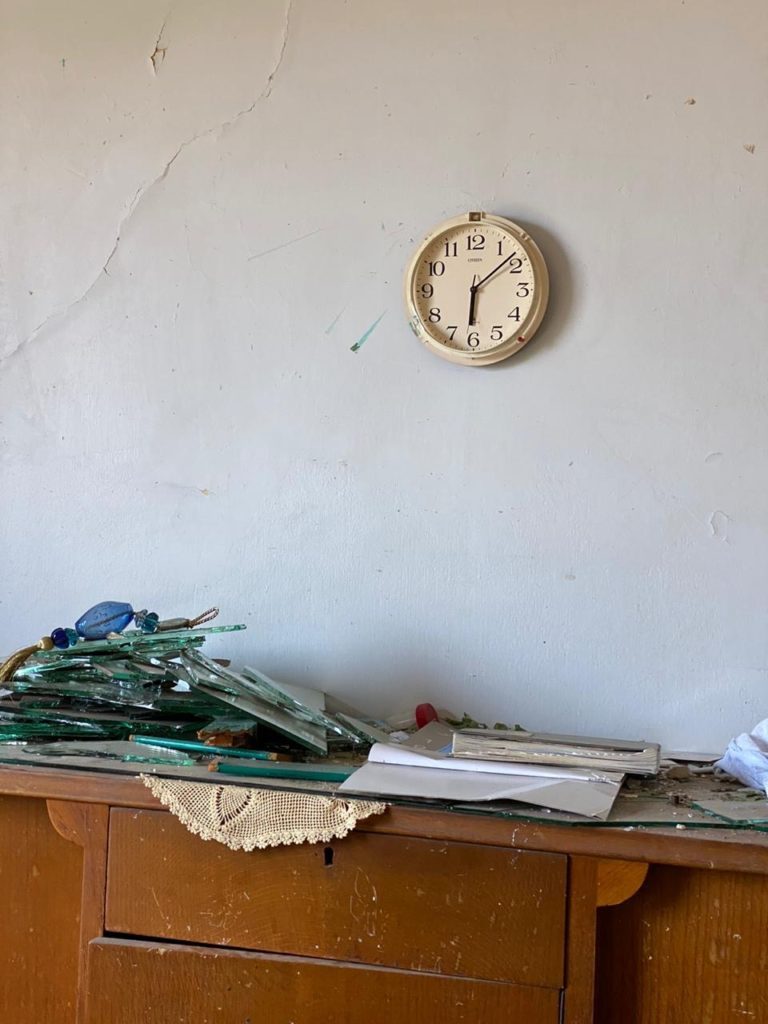


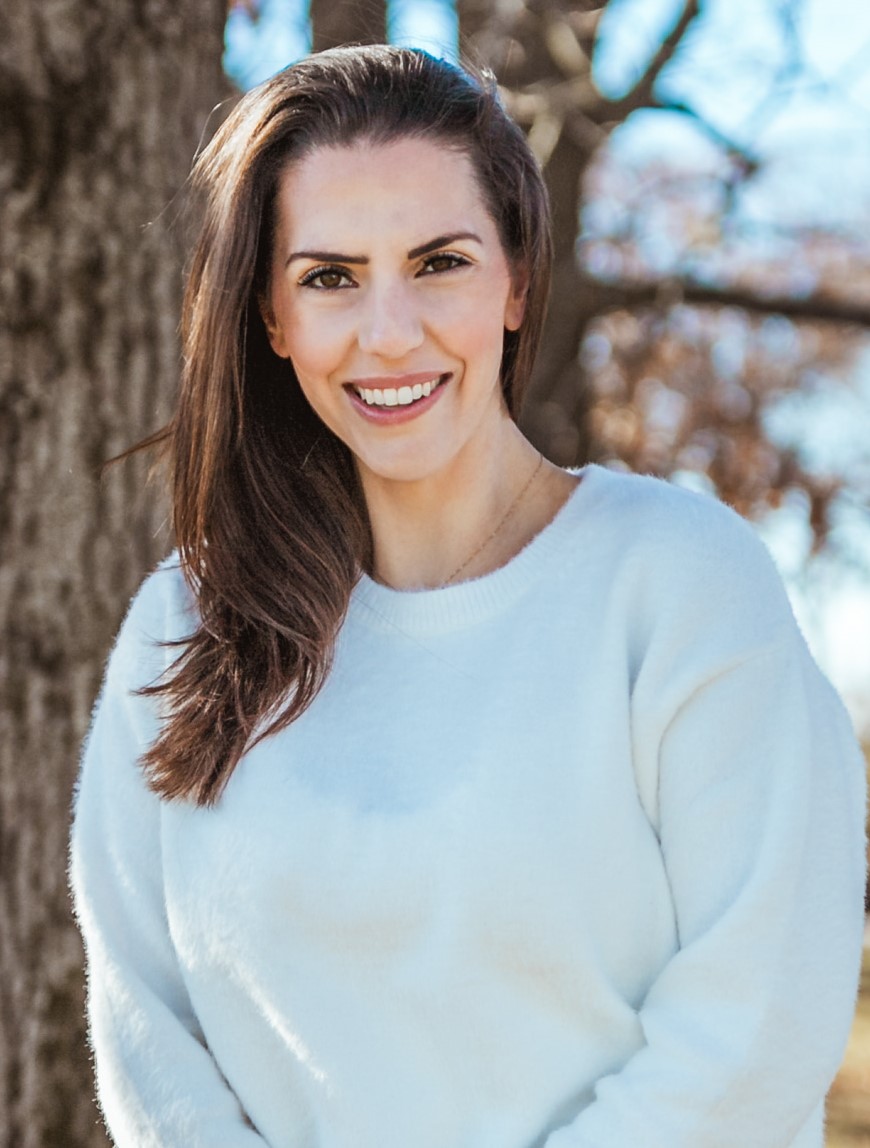
Be the first to comment